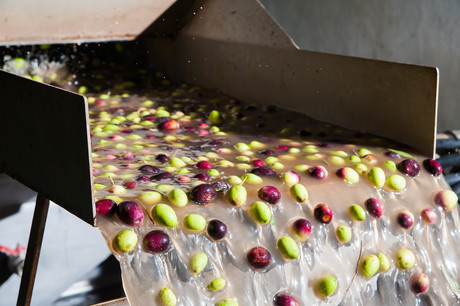Process olives without hurting the environment

To make olives palatable, commercial processors remove the bitter-tasting phenolic compounds such as oleuropein and ligstroside from the fruit. This is usually done by soaking the fruit in a potassium or sodium hydroxide solution and then washing it several times. This process is doubly bad for the environment as it consumes large amounts of water and produces toxic wastewater.
However, now a more environmentally method is in the offing following work by researchers from the Department of Food Science and Technology, University of California, Davis. Macroreticular polymeric resins were assessed to find if they could assist debittering and decrease water use. Four resins, Amberlite resins XAD4, XAD16N, XAD7HP and FPX66, were evaluated for the ability to adsorb bitter and/or high-value phenolic compounds with FPX66 proving particularly effective.
FPX66 reduced oleuropein in whole olives suspended in a 1.0% acetic acid brine to 0.635 mg/kg wet weight in 2.5 months with no further processing. This concentration is below levels measured in commercial California-style black ripe olives (0.975 mg/kg wet weight).
Not only is this method much more environmentally sustainable, the high-value phenolic compounds could be recovered from the resins by alcohol extraction.
These results have been reported in ACS’s Journal of Agricultural and Food Chemistry.
SPC Global to close facility under demand-led manufacturing strategy
SPC Global plans to close its Mill Park facility in Victoria by August 2026 and relocate...
Unlocking the benefits of avocados across the value chain
Westfalia Fruit is helping to advance the future of the avocado sector with its zero-waste,...
Risk management approach for toxin in infant formula
Following recent recalls of specific infant formula products, the European Food Safety Authority...












